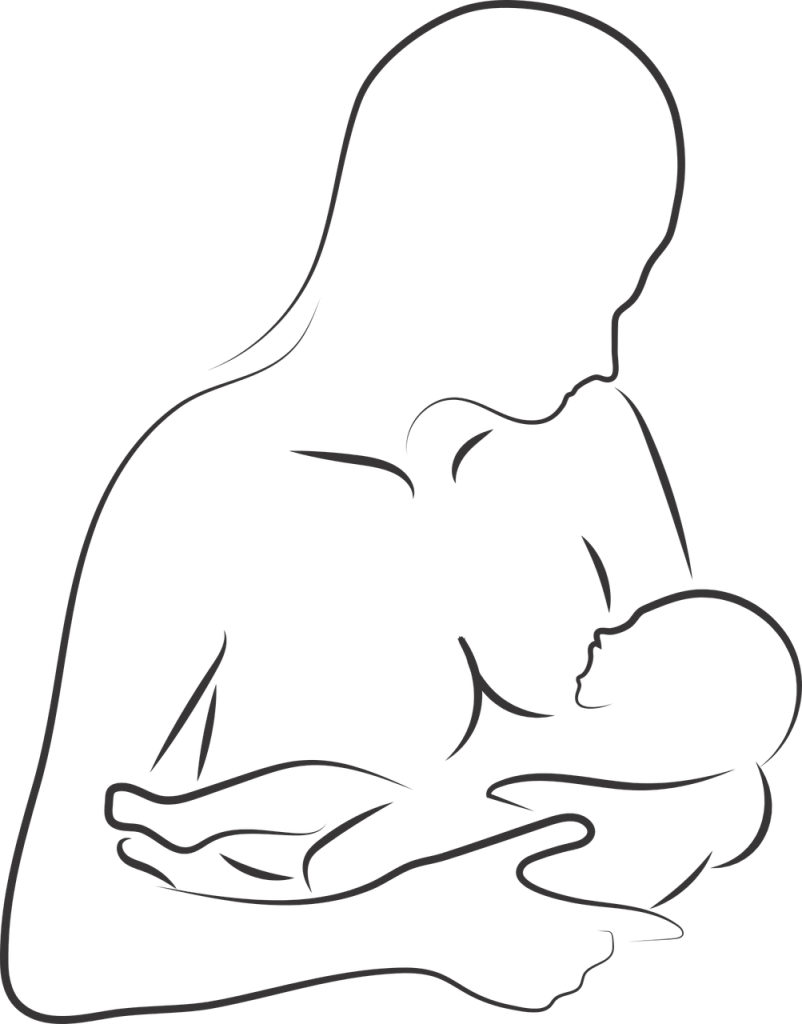 We are what we eat. Evidence clearly shows that the function and structure of our own tissues are significantly affected by the quality of the nutrition that we consume. The same is also true for breast milk. Evidence clearly shows that the diet of the mother directly affects the nutritional composition of breast milk. As the development of the infant is dependent on the nutritional composition of the breast milk, the diet of the mother can have significant implications for the health of her child. For example, the total energy content of the maternal diet affects the energy content of the milk. Diets high in fat but low in carbohydrate can increase the energy content of the milk compared to diets high in carbohydrate and low in fat. This relates to the way that fatty acids play an important role in the composition of breast milk. Some of these fatty acids are there to provide an important source of energy to the infant for general growth, but others are present in order to fulfill other roles such as the provision of essential fatty acids for brain development.
We are what we eat. Evidence clearly shows that the function and structure of our own tissues are significantly affected by the quality of the nutrition that we consume. The same is also true for breast milk. Evidence clearly shows that the diet of the mother directly affects the nutritional composition of breast milk. As the development of the infant is dependent on the nutritional composition of the breast milk, the diet of the mother can have significant implications for the health of her child. For example, the total energy content of the maternal diet affects the energy content of the milk. Diets high in fat but low in carbohydrate can increase the energy content of the milk compared to diets high in carbohydrate and low in fat. This relates to the way that fatty acids play an important role in the composition of breast milk. Some of these fatty acids are there to provide an important source of energy to the infant for general growth, but others are present in order to fulfill other roles such as the provision of essential fatty acids for brain development.

A high quality diet consumed by the mother during breast feeding may provide higher quality breast milk to the infant.
As the total saturated fatty acid composition of the maternal diet increases, breast milk concentrations of saturated fat also increases. This has been shown for example when mothers consume high saturated fat dairy products. The patterns of change for individual saturated fatty acids are not fully understood as different studies have shown different relationships. However, generally the saturated fatty acid composition of the diet can impact the composition of breast milk. This is also true for monounsaturated and polyunsaturated fatty acids. With regard to the latter, this group of fatty acids contains the essential fatty acids alpha linolenic acid (ALA, C18: 3 (n-3)) and linoleic acid (LA, C18:2 (n-6)) which are both required for brain and central nervous system development. The omega-3 fatty acids eicosapentaenoic acid (EPA, C20:5 (n-3)) and docosahexaenoic acid (DHA, C22:6 (n-3)), also required for brain development, have also been shown to increase in breast milk in proportion to their concentration in the diet of the mother.

The composition of the maternal diet can have a significant impact on the composition of breast milk. In particular, total energy, saturated fat, monounsaturated fat, polyunsaturated fat, protein, vitamin C, vitamin E, zinc and selenium concentrations in breast milk may all share a relationship with the maternal intake of these nutrients. The same may be true for other nutrients, but studies in this area are limited. Many studies show that breast fed infants are healthier than formula fed infants. It may also be that those infants fed with breast milk by mothers with a high quality diet are healthier than those infants fed by mothers consuming a low quality diet.
No significant relationship has been shown between the carbohydrate composition of the maternal diet and the carbohydrate content of the breast milk. However, the total protein content of the maternal diet can impact the protein content of the breast milk. Higher maternal protein intakes result in higher levels of protein in the breast milk, although it is not known how the intakes of individual amino acids in the diet of the mother affect the composition of the breast milk. Certain vitamins and minerals in breast milk may also reflect dietary maternal intake. For example high intakes of vitamin C and vitamin E may both increase the breast milk concentrations of these minerals. Knowledge on the relationship between mineral intake of breast milk mineral composition is limited. But it is known that higher maternal intakes of zinc are associated with higher zinc breast milk zinc concentrations, and certain foods including eggs are associated with higher breast milk concentrations of selenium. The picture for other minerals is not clear.
Eat Well, Stay Healthy, Protect Yourself
RdB
